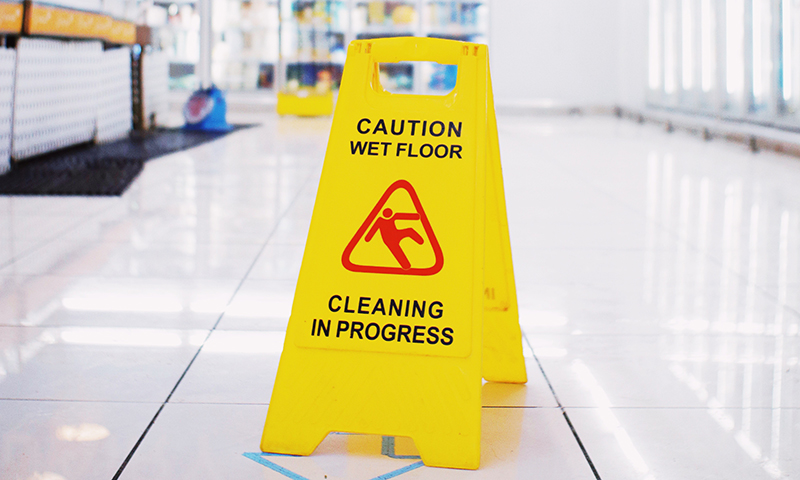
How Does the Duty of Care Rule Work in West Virginia?
Duty of care often comes up in instances of personal injury and medical negligence, and it can be challenging to prove whether or not a property owner, business entity, or doctor had a legal duty to take action that would have prevented injury. Below, we will discuss the definition of “duty of care,” several examples, and the four elements that will need to be proven in court.
If you have been injured by someone else’s negligence, give our personal injury attorneys a call. We will listen to the facts of your case for free and give an honest assessment of your situation.
How is Duty of Care Defined in West Virginia?
In West Virginia, duty of care is the legal obligation one person has to avoid causing foreseeable harm to another. The standard is based on what a “reasonable person” would do in the same situation. However, this general rule varies depending on the relationship between the parties, the circumstances, and the type of injury.
For instance, drivers on the road owe each other a duty to follow traffic laws and drive responsibly to prevent accidents. Similarly, property owners must keep their premises reasonably safe for guests or customers. West Virginia Code §55-7-27 outlines that a possessor of real property owes no duty to trespassers except to refrain from willfully or wantonly causing harm. This means landowners do not have to safeguard their property for trespassers but cannot intentionally harm them.
Some Hypothetical Duty of Care Examples
Large stores can be hotbeds of slip and fall accidents. Any store owner in Morgantown is responsible for keeping walkways clean and free of hazards like spilled liquids, and if a customer slips on a wet floor with no warning signs, the owner may have breached their duty of care. Or let’s say that a homeowner in West Virginia has a dog that escaped the yard and bit somebody. The homeowner has breached a duty of care.
But the injured party may not always win. For instance, if a hiker trespassing on private land is injured in the course of trespassing, the property owner will rarely face any liability according to West Virginia law.
How Duty of Care Relates to Personal Injury Cases
Duty of Care in Medical Malpractice
Doctors must provide care that meets the acceptable standard in their medical field. In order to bring a medical negligence claim, an injured party must prove that the provider breached this standard (see WV 55-7B-6). This is not always a straightforward process, and it always involves expert testimony.
For example, if a surgeon operates on the wrong body part, or a doctor fails to diagnose a condition that a competent professional would have identified, they may have breached their duty of care. Note that doctors are measured relative to peers rather than a general “reasonable person.”
Duty of Care for Slip and Falls
When an individual sustains an injury by slipping and falling on property owned by someone else, the injured person may be entitled to compensation. But West Virginia Code §55-7-28 does state that property owners are not liable for hazards that are open and obvious.
If a hazard like an uncovered hole or a patch of ice is clearly visible, the injured person might be precluded from bringing a claim.
However, property owners must still address dangerous conditions that are not obvious. For instance, a broken stairway railing in an apartment building may not be noticeable until someone attempts to use it. Or ice on unsalted stairs leading to a place of business – these may involve a duty of care by the business or property manager.
Other Types of Injury Cases
Duty of care applies to other personal injury claims, including car accidents, product liability, and workplace injuries.
For example, drivers owe a duty to stop at red lights, yield to pedestrians, and so forth. If a driver speeds through an intersection and hits another car, they have breached their duty. Employers have a duty to provide safe work environments for employees, and if, for example, a construction company fails to follow safety protocols and a worker is injured, the company may be liable.
How is Duty of Care Proven?
There are four main elements examined in every such case.
Was the Defendant “Owed a Duty?”
Did the defendant owe a legal duty of care to the injured party? This typically depends on the relationship between the parties and the circumstances. For example, drivers automatically owe a duty to others on the road, and doctors owe a duty to their patients. But private property owners don’t owe a duty of care to trespassers – this is where a lawyer can help you.
Was that Duty Breached?
The plaintiff must show that the duty of care was breached through recklessness, negligence, or even malicious means. This is not always easy to prove, but an injury attorney can help.
Did the Defendant’s Breach of Duty Cause the Injury?
So you’ve proven that the defendant acted recklessly and breached a duty of care. But did that breach actually cause your injury, or the full extent of your injury? This includes showing both actual cause (“but for” the defendant’s actions, the injury wouldn’t have occurred) and proximate cause (the harm was a foreseeable consequence of the defendant’s conduct).
Were Damaged Involved?
If you suffered measurable damages, like medical bills and lost income, or even pain and suffering, you may be able to recover compensation (assuming elements #1-#3 are also true). Our skilled team of injury attorneys can help you determine the actual amount of compensation to fight for.
Real-Life Applications of the Duty of Care Rule
Suppose a grocery store in Morgantown knows about a leaking freezer, but the manager fails to clean the water or place warning signs. Then you slip on the water and sustain injuries. The business entity clearly breached their duty by failing to address the hazard in this case. If you sustained injuries and genuine damages as a result of the injury, you may receive a settlement offer.
But on the other hand, if a pedestrian is jaywalking at night in Charleston while wearing dark clothing, they will carry some responsibility if they are hit by a vehicle. That’s because the driver’s “duty of care” does not include anticipating illegal behavior on the part of the pedestrian.
Comparative Negligence in West Virginia
If two parties share fault in an accident, the injured party’s potential compensation can be reduced relative to their percentage of fault. The actual percentages will be argued by your lawyer, and a jury will assign percentages of fault in trial. So even if you were hit by a car and injured, your fault percentage may increase if you were on your phone or otherwise distracted.
Get Help With Your Injury Case Today
As a leading personal injury law firm in West Virginia, Miley Legal is here to help you navigate personal injury claims. Whether you need legal assistance in Clarksburg, Martinsburg, Morgantown, or elsewhere in the state, we are happy to provide a complimentary consultation. Please give us a call at your earliest convenience.

